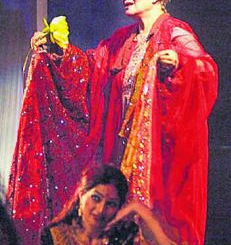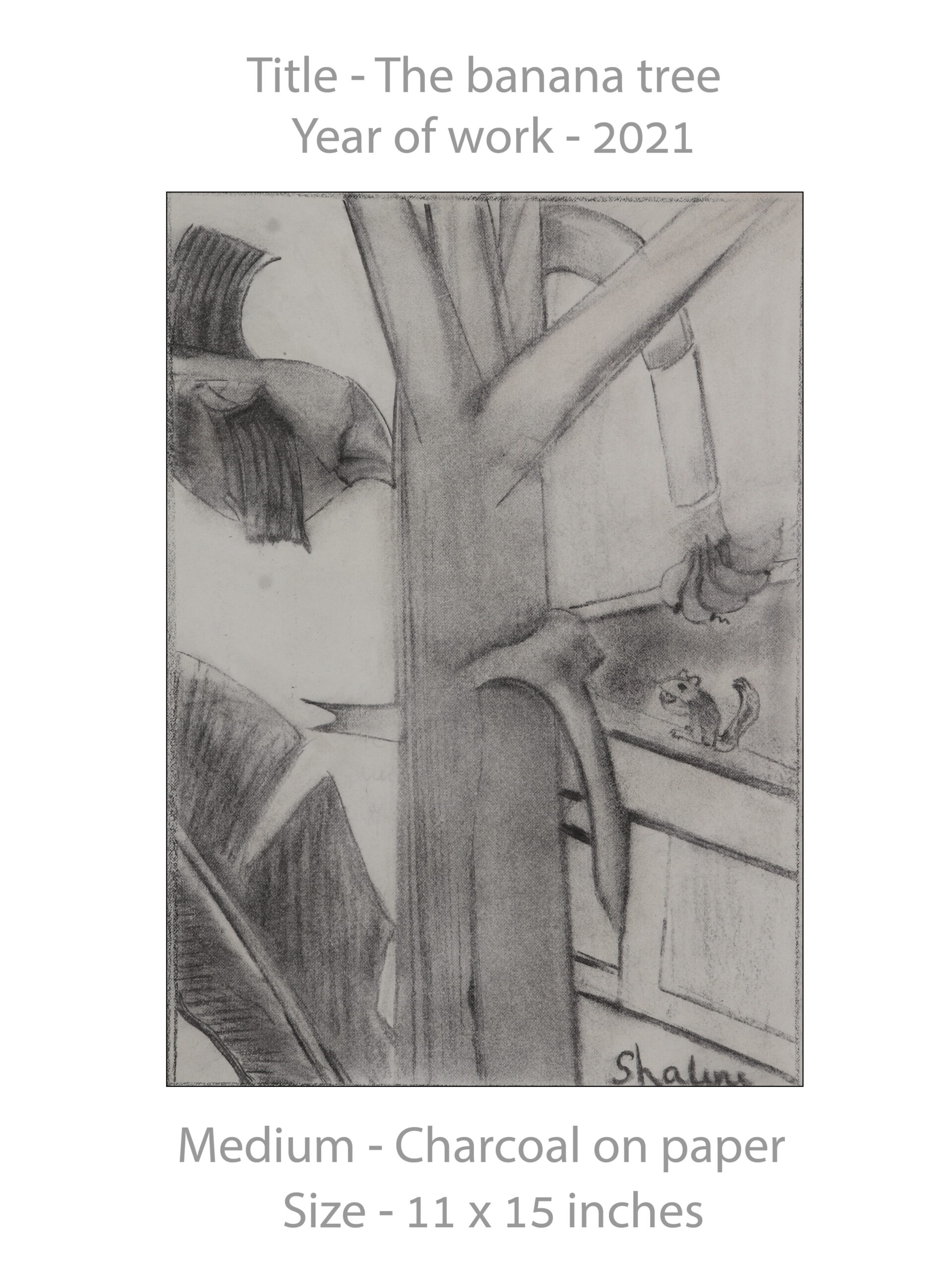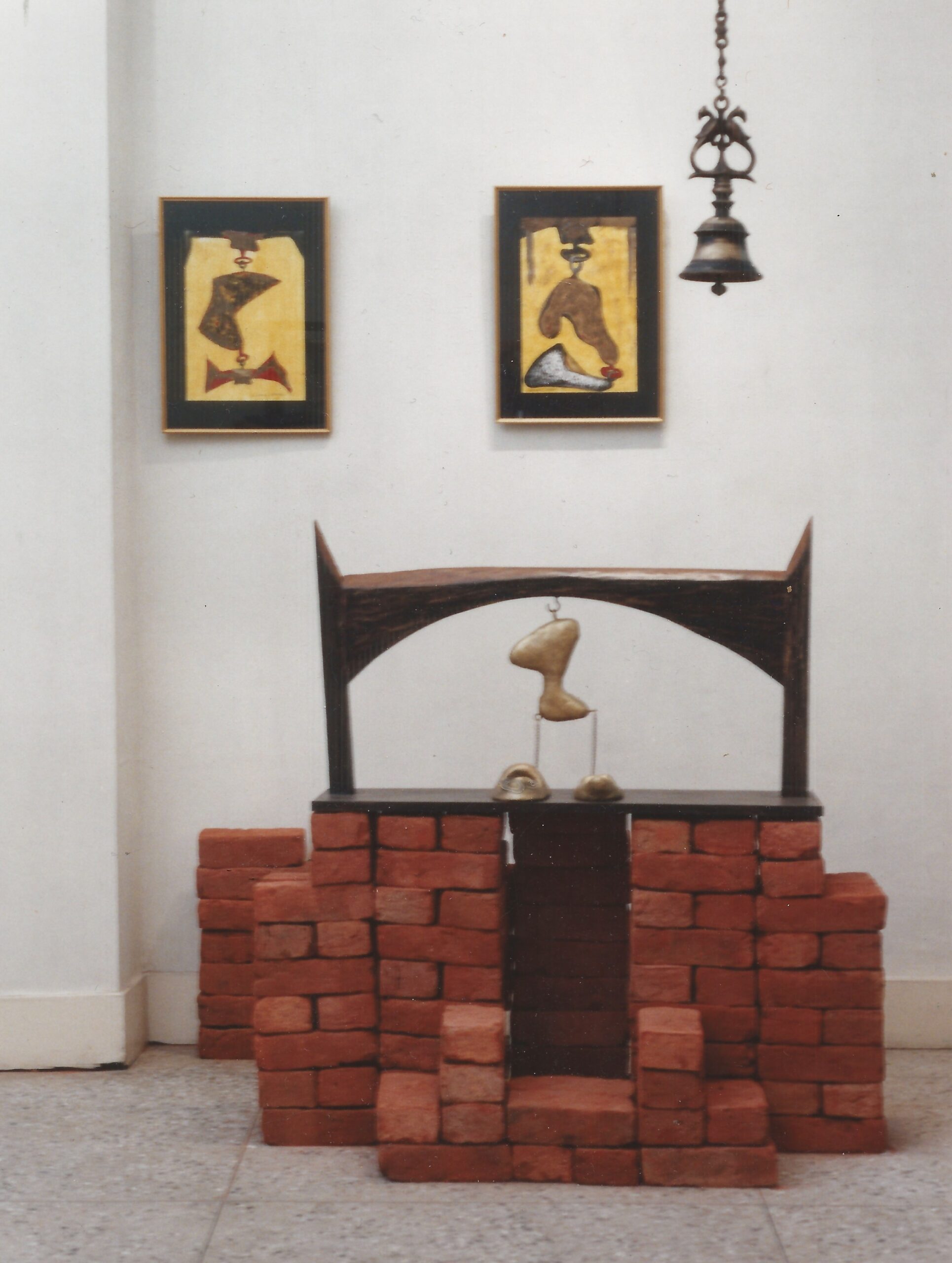Satyagrah by Dr. Arjun Deo Charan
The Play
After the assassination of Rao Viram, his wife takes shelter in Aalha Charan’s house, in Kalau village, to save her son, Chunda’s life. Aalha brings up her son. He protects and educates him. When Chunda gets the throne of Mandore, he expresses his gratitude to his patroniser, and presents him a manor (state) and calls it ‘Sansan’, which meant such a state from where the king would not collect any tax. The tradition of presenting ‘Sansan’ to the Charan broke at the time of coronation of Maldev’s son. Maldev declared his youngest son, Chandrasen, the king of Jodhpur. After Maldev’s death his two elder sons Ram and Udai Singh began to fight with Rao Chandrasen. Rao Chandrasen defeats them but later they dethrone him with the help of Mughal King Akbar. Rao Chandrasen fights for the freedom of his country against Emperor Akbar. In this struggle he gets full support of Charan poets.
After the death of Rao Chandrasen, his elder brother Udai Singh, after gratifying Akbar with his services, becomes the ruler of Jodhpur. To please the emperor he tries to obliterate Chandrasen’s name from history. The Charan poets oppose this act of his and justify the freedom fight by Chandrasen. Infuriated king Udai Singh confiscates their Sansan. When Charans protest, he issues forth an order to remove them from Marwar. When Charan poets start leaving Marwar, the Aauwa Thakur, Gopaldas Champawat stops them and provides place in his village to demonstrate against the king. When king Udai Singh comes to know this, he gets infuriated, due to which Gopaldas returns the lease of Pali and returns to Aauwa. Eventually 185 Charan Poets sacrifice their lives against the
king’s injustice by beheading themselves with their own Kataar. This occurrence is registered in history in 1643.
Director’s Note
In this era of post-modernism, it has been realised that we should review our past. Satyagrah is based on a historical incident that occurred in 1643. This incident stirred the then political environment. acrifices by the Charan Poets against the throne will remain a source of inspiration for generations to come. In history, such unprecedented occurrence is viewed again in the freedom struggle for India, during Mahatma Gandhi’s ‘Satyagrah’. It is considered that Mahatma Gandhi was inspired by the demonstration of the Charans.
The Director & Playwright
Arjun Deo Charan is an established Rajasthani poet, playwright and critic. He has written nineteen plays and has participated in many seminars at the national level. Arjun Deo Charan has been awarded by Sahitya Academy, New Delhi; Sangeet Natak Akademi, New Delhi; Rajasthani Bhasha Sahitya and Sanskriti Academy; Rajasthan Sangeet Natak Academy; and Bihari Puruskar of K.K.Birla foundation. Presently he is the officiating Chairman of National School of Drama Society, and Convener of Rajasthani Sahitya Academy Delhi.
The Group
Rammat was founded three decades ago. It has been a movement that provides buoyancy toRajasthani Theatre. It has had the privilege to be a part of festivals of repute like National Theatre Festival (1992) by Sangeet Natak Academy, Delhi; Multi-Language Theatre Festival (1992), Bharat Bhawan, Bhopal; National Theatre Festival (2000) by Kerala Sangeet Natak Akademi, and the 6th and 17th Bharat Rang Mahotsav (2004), NSD, New Delhi.
Cast & Credits
Aalha & Udai Singh Deepak Bhatnagar
Rao Chunda Rajesh Vyas
Gopaldas Champawat Ashish Charan
Govind Bogsa Mahesh Mathur
Chaandan Khidhiya & Akha Barath Magh Singh
Rao Chandersen & Charan Poet Bhana Rajesh Vyas
Pardhan Ravindra Singh
Viram’s wife Madhu Kumari
Rao Jodha Ashish Cgaran
Charan Poet Kesa Rahul Bora
Bind Krishna Tak
Charwaha Krishna Tak, Mohit
Sainik/Sewak/Adivasi Magh Singh
Raj Kapil
Krishna Tak
Love Chaudhary
Saurabh Tanwar
Ashish Gautam
Mahendra Rawal
Mohit Baniya
Mahendra Singh
Dheeraj
Vocals Prof. Rajendra Vaishnav
Lights Mohammad Shafi
Set Magh Singh, Saurabh Tanwar
Playwright & Director Dr. Arjun Deo Charan









